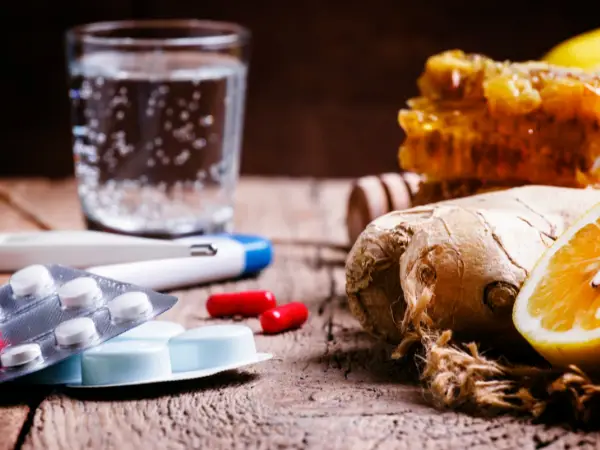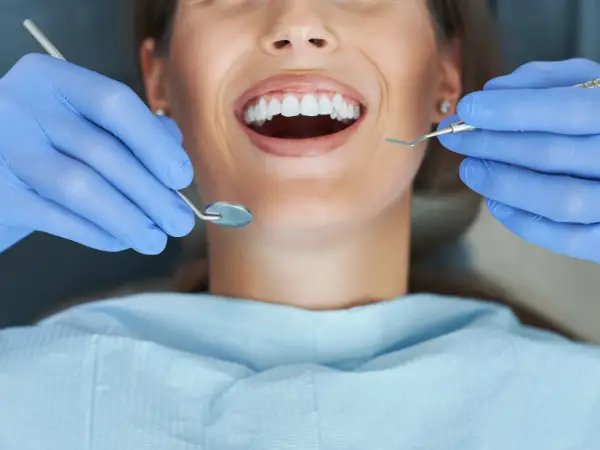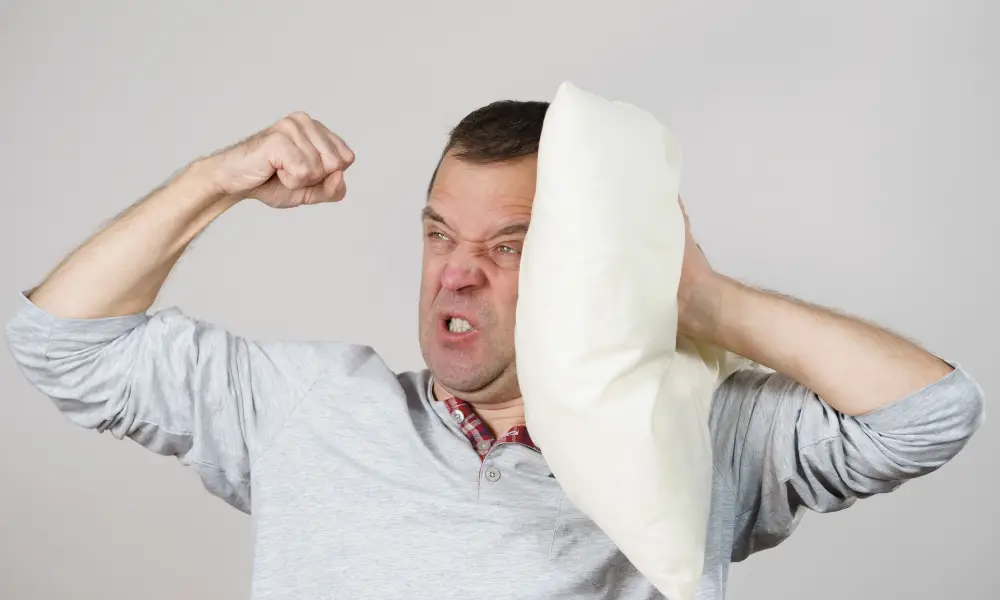Extreme tooth pain can disrupt sleep, but methods like over-the-counter pain relievers and cold compresses may help. Elevating your head and avoiding certain foods can also promote sleep despite the pain.
Suffering from severe tooth pain at night can be an agonizing experience, often leaving you tossing and turning in search of relief. Getting restful sleep becomes a daunting task when every throb feels like a hammer to your jaw. Yet, it’s critical to address this nighttime nemesis, as quality sleep is crucial for healing and overall well-being.
This introduction outlines five effective strategies to mitigate toothache and facilitate sleep, ensuring that your nights are no longer overshadowed by dental distress. From practical pain management to simple sleeping adjustments, these tips are designed to help you find solace in slumber even when your toothache tries to take center stage.
Table of Contents
Causes Of Extreme Tooth Pain
Extreme tooth pain makes it hard to sleep. Understanding the causes can help. Let’s explore why tooth pain happens and how to find relief.
Cavities
Cavities are a top reason for tooth pain. They happen when tooth enamel gets damaged. Bacteria in your mouth make acids that cause this damage. Not brushing your teeth can lead to cavities. Here are signs you might have a cavity:
- Visible holes in your teeth
- Tooth sensitivity
- Pain when you eat something sweet, hot, or cold
To avoid cavities, brush your teeth twice a day. Use fluoride toothpaste. Also, see your dentist regularly. They can spot cavities early and treat them.
Gum Disease
Gum disease is another cause of tooth pain. It starts when plaque builds up on your teeth. If not cleaned, it can make your gums swollen, red, and even bleed. Here’s how you can tell you might have gum disease:
- Bad breath that won’t go away
- Loose teeth
- Gums that are pulling away from your teeth
To prevent gum disease, clean your teeth well every day. Use a toothbrush and floss. Visit your dentist for cleanings and check-ups.
Tooth Abscess
A tooth abscess is a serious infection. It happens at the root of a tooth or between the gum and a tooth. It can cause severe pain. Signs of a tooth abscess include:
- Severe, throbbing pain
- Swelling in your face or cheek
- Fever
It’s important to see a dentist if you think you have an abscess. They can treat it with medicine or surgery. Brushing, flossing, and regular dental visits can help prevent an abscess.

Impact Of Tooth Pain On Sleep
Extreme tooth pain is a nightmare, especially when it strikes at night. It’s not just the discomfort; it’s how it steals your sleep. Good sleep is crucial for health, but tooth pain can turn restful nights into endless hours of tossing and turning. Let’s explore how tooth pain affects sleep and unveil five methods to ease into slumber, despite the ache.
Disrupted Sleep Patterns
When tooth pain hits, it can throw off your sleep rhythm. Instead of drifting into deep sleep, you find yourself wide awake, clock-watching. Here’s how the pain plays havoc with your rest:
- Difficulty Falling Asleep: The throbbing pain keeps your brain alert, making it hard to wind down.
- Frequent Wake-ups: If you manage to doze off, the slightest pain spike can jolt you awake.
- Reduced Sleep Quality: Pain disrupts REM sleep, the deeply restorative stage.
These interruptions can lead to a cycle of sleep deprivation, affecting your mood and health. A look at sleep patterns of individuals with tooth pain reveals a clear disturbance:
| Normal Sleep Pattern | With Tooth Pain |
|---|---|
| 7-9 hours of uninterrupted sleep | Broken sleep with multiple awakenings |
| Consistent bedtime and wake-up time | Erratic sleep schedule |
| Deep REM cycles | Shallow sleep with less REM |
Increased Stress And Anxiety
Not only does tooth pain disrupt sleep, but it also fuels stress and anxiety. The constant pain can trigger your body’s stress response, leading to:
- Elevated Heart Rate: Your heart works overtime, trying to cope with the discomfort.
- Muscle Tension: You may find your jaw or shoulders tensing up, adding to the pain.
- Anxiety Over Sleep Loss: Worrying about not getting enough sleep can make falling asleep even harder.
This stress can create a vicious cycle, where anxiety about pain and sleep loss feeds into more sleeplessness. Studies show that people with persistent tooth pain often experience higher levels of stress:
| Normal Stress Level | With Tooth Pain |
|---|---|
| Mild, manageable stress | High, persistent stress |
| Occasional anxiety | Frequent, intense anxiety |
| Relaxed muscles | Constant muscle tension |
By addressing the tooth pain and taking steps to relax, you can break the cycle and improve your chances of a restful night.
Traditional Remedies For Tooth Pain
Extreme tooth pain often leads to long, sleepless nights. Finding relief becomes a top priority. Traditional remedies for tooth pain can be lifesavers. These remedies range from over-the-counter painkillers to tried-and-true home treatments. They help manage pain until you can visit a dentist.
Over-the-counter Pain Relievers
For immediate relief, over-the-counter pain relievers are a first line of defense. They reduce inflammation and alleviate pain. Always follow the dosage instructions on the package. Here are some effective options:
- Ibuprofen – Reduces swelling and dulls the pain.
- Acetaminophen – Eases pain but does not reduce inflammation.
- Aspirin – Has anti-inflammatory properties and provides pain relief.
Remember, aspirin should not be used by children under 18 years of age due to the risk of Reye’s syndrome. It is also important not to place the tablet directly on the gum or tooth, as this can cause a burn.
| Medicine | Function | Notes |
|---|---|---|
| Ibuprofen | Pain relief and inflammation reduction | Take with food to avoid stomach upset |
| Acetaminophen | Pain relief | Good for those who can’t take anti-inflammatory drugs |
| Aspirin | Pain relief and inflammation reduction | Not suitable for children or for direct application |
Home Remedies
When over-the-counter options are not enough, home remedies can provide comfort. They use items found in most kitchens. Here are some soothing solutions:
- Saltwater rinse – Dissolve a teaspoon of salt in a cup of warm water and swish around the mouth.
- Cold compress – Apply a cold pack to the cheek to reduce swelling and numb the area.
- Clove oil – A natural anesthetic that can be applied to the affected tooth with a cotton ball.
These remedies can offer temporary relief but should not replace professional dental care. Let’s explore how they work:
| Remedy | How It Helps | Application |
|---|---|---|
| Saltwater Rinse | Cleanses and eases swelling | Swish for 30 seconds, then spit out |
| Cold Compress | Numbs pain and reduces inflammation | Apply for 15 minutes, rest, then repeat |
| Clove Oil | Natural anesthetic properties | Apply a small amount using a cotton ball |
Remember, these remedies may offer relief but are temporary solutions. A visit to the dentist is essential to address the underlying cause of the pain.

Professional Treatment Options
Extreme tooth pain makes it hard to sleep. Good sleep is key for health. Professional treatment options can help. Dentists offer solutions for pain. They can make you sleep better. Let’s talk about these treatments.
Dental Procedures
Dentists have many ways to fix tooth pain. These methods depend on the cause. Quick treatment can bring relief. Here are some common procedures:
- Fillings: For cavities causing pain.
- Root canals: For deep infection. They save the tooth.
- Extractions: Sometimes, removing the tooth is best.
Choosing the right method is important. Dentists check your teeth first. They use tools to find the problem. Then, they suggest the best fix.
| Procedure | Description | Goal |
|---|---|---|
| Fillings | To fill cavities | Stop decay |
| Root Canals | To treat infection | Save the tooth |
| Extractions | To remove the tooth | Relieve pain |
Regular dental check-ups prevent future pain. They keep your teeth healthy. Always follow the dentist’s advice.
Prescription Medications
Sometimes, procedures need medications for pain. Dentists prescribe them. Here are some types:
- Antibiotics: To fight infection.
- Painkillers: To ease pain quickly.
- Anti-inflammatory drugs: To reduce swelling.
Follow the dentist’s instructions on how to take these. Don’t skip doses. Don’t stop early.
Here’s a table of common medications:
| Medication | Type | Use |
|---|---|---|
| Amoxicillin | Antibiotic | Fight infection |
| Ibuprofen | Anti-inflammatory | Reduce pain and swelling |
| Acetaminophen | Painkiller | Relieve pain |
Medications help during treatment. They make recovery smoother. Always take as directed. This ensures the best healing.

Natural Methods To Alleviate Tooth Pain
Throbbing tooth pain can turn nights into a nightmare, making sleep a distant dream. Yet, there’s hope with natural methods to soothe such agony. These remedies can ease the pain and help you drift off to sleep.
Essential Oils
Essential oils offer a gentle touch to calm fierce tooth pain. They are natural, easy to use, and can bring quick relief. Here’s how to use them:
- Clove Oil: A natural numbing agent known for its pain relief properties.
- Peppermint Oil: Has a cooling effect and can reduce discomfort.
To apply, mix a drop of oil with a teaspoon of coconut oil. Soak a cotton ball in the blend and dab gently on the sore area. Be sure to avoid swallowing.
| Oil | Benefits | How to Apply |
|---|---|---|
| Clove | Numbing, pain relief | Mix with carrier oil, apply with cotton |
| Peppermint | Cooling, soothing | Mix with carrier oil, apply with cotton |
Cold Compress
A cold compress works wonders on swelling and pain. It’s simple and you can make one at home. Just wrap ice in a clean cloth and hold it against your cheek. This can reduce inflammation and numb the area, offering relief. Keep the compress on for 15 minutes, then take a 15-minute break. Repeat as needed.
- Wrap ice in cloth
- Apply to affected cheek
- Hold for 15 minutes
- Rest for 15 minutes
- Repeat if necessary
Remember, never put ice directly on your skin. Always use a protective layer. This method is safe, effective, and can be your first step towards a pain-free night.
The Connection Between Tooth Pain And Sleep
Throbbing tooth pain can turn a good night’s sleep into a distant dream. It’s like a ticking clock, each pulse reminding you of the discomfort. Tooth pain doesn’t just hurt; it also disrupts the body’s need for rest. Sleep is vital for healing and overall health. Yet, extreme tooth pain can make it impossible to drift off into slumber. Understanding this connection is the first step to finding relief and catching those much-needed Z’s.
Neological Impact
Let’s dive into the brain’s reaction to tooth pain during the night. Pain signals don’t simply vanish when we try to rest. They travel to the brain, alerting it to trouble. This can cause a flurry of neural activity, keeping you awake. Here’s how that happens:
- Signals from the painful tooth enter the central nervous system.
- The brain’s thalamus receives these signals and sends them to higher centers.
- These centers, like the cortex, process the pain, making you fully aware of it.
- As a result, the brain’s sleep-wake cycle gets disrupted, leading to insomnia.
Research shows that the brain’s hypothalamus, which controls sleep, can be thrown off balance by pain. This imbalance can lead to less sleep and poorer quality sleep. Below is a table summarizing these effects:
| Brain Part | Function | Effect of Tooth Pain |
|---|---|---|
| Thalamus | Relays sensory information | Increases alertness due to pain signals |
| Cortex | Processes pain perception | Enhances awareness of pain |
| Hypothalamus | Regulates sleep-wake cycle | Disrupts sleep patterns |
Psychological Impact
Now, let’s explore the mind’s battle with tooth pain at bedtime. Pain is not just a sensation; it also has an emotional component. It can trigger a flood of stress and anxiety, which can keep you from falling asleep. Here’s a closer look:
- Stress hormones like cortisol rise in response to pain.
- Anxiety about the pain’s cause and its persistence can grow.
- Worry about lack of sleep can lead to a vicious cycle of insomnia.
The psychological turmoil caused by tooth pain can exacerbate the physical discomfort. It’s like a loop where pain leads to stress, and stress leads to more pain. This cycle can be illustrated as follows:
| Psychological State | Impact on Sleep |
|---|---|
| Increased Stress | Higher difficulty falling asleep |
| Rising Anxiety | Interrupted sleep patterns |
| Fear of Insomnia | Extended periods of wakefulness |
In summary, the mind’s response to tooth pain can make sleep elusive. Understanding these impacts is crucial to breaking the cycle and finding peace in the night.
Creating A Sleep-friendly Environment
Are you struggling with extreme tooth pain at night? Can’t sleep? You’re not alone. Many people face this. A key step to better sleep is creating a sleep-friendly environment. Let’s explore how to do this, focusing on your sleeping position and relaxation techniques.
Comfortable Sleeping Position
Finding a comfortable sleeping position is crucial when you’re in pain. It can ease the discomfort and help you fall asleep faster. Let’s look at some tips:
- Keep your head elevated: Use pillows to raise your head. This can reduce pressure on your tooth.
- Choose the right mattress and pillow: Ensure they support your neck and back properly.
- Avoid sleeping on the affected side: This can prevent extra pressure on your painful tooth.
Here’s a table to help you remember:
| Tip | How It Helps |
|---|---|
| Elevate head | Reduces tooth pressure |
| Right mattress and pillow | Supports neck and back |
| Avoid affected side | Prevents extra pressure |
Trying different positions might be needed to find what works best for you.
Relaxation Techniques
Relaxation techniques can also make a big difference. They calm your mind and body, making it easier to sleep. Here are some methods:
- Deep breathing: Take slow, deep breaths. This helps relax your body.
- Progressive muscle relaxation: Tense and then relax each muscle group. Start from your toes and work up.
- Visualization: Imagine a peaceful place. Focus on the details and sensations.
Consider this routine:
- Start with deep breathing for 5 minutes.
- Move on to progressive muscle relaxation, spending a few minutes on each part of your body.
- End with visualization for 5-10 minutes.
This routine can significantly reduce your pain and stress, making sleep more achievable.
Recommended Sleep Aids For Tooth Pain
Nothing compares to the agony of extreme tooth pain, especially when it’s bedtime. The discomfort can be so intense that it makes falling asleep seem impossible. But fear not! Several methods can help ease the pain and allow for a restful night’s sleep. Let’s explore some recommended sleep aids that specifically target tooth pain, ensuring you can catch those much-needed Zs.
Sleep-inducing Teas
When toothache strikes, a warm cup of herbal tea may be just what you need. Certain teas contain natural ingredients that help soothe pain and relax the body. Here are some top picks:
- Chamomile Tea: Known for its calming properties, chamomile can reduce inflammation and ease pain.
- Peppermint Tea: The menthol in peppermint acts as a muscle relaxant and pain reliever.
- Clove Tea: Clove oil is a well-known remedy for dental pain due to its numbing effect.
Remember to drink your tea warm, not hot, to avoid aggravating your tooth. A table comparing these teas might look like this:
| Tea Type | Key Ingredient | Pain Relief Properties |
|---|---|---|
| Chamomile Tea | Chamomile | Anti-inflammatory, calming |
| Peppermint Tea | Menthol | Muscle relaxant, pain reliever |
| Clove Tea | Clove Oil | Anesthetic, antibacterial |
White Noise Machines
A white noise machine might be your ally against tooth pain at night. The steady, soothing sounds help distract your mind from the pain. Here’s why white noise can be effective:
- Distracts the brain: Constant, low-level sound masks the pain signals sent to the brain.
- Promotes relaxation: Sounds like ocean waves or rain create a calming environment conducive to sleep.
- Improves sleep quality: Consistent background noise can lead to deeper, more restful sleep.
Consider these features when choosing a white noise machine:
| Feature | Description | Benefit |
|---|---|---|
| Volume Control | Adjustable sound levels | Customize to personal comfort |
| Sound Variety | Multiple sound options | Find the perfect soothing sound |
| Timer | Auto-off function | Conserves energy, allows for uninterrupted sleep |
Select a machine with a range of sounds to discover what works best for you. With these sleep aids, tooth pain doesn’t have to rob you of a good night’s sleep.
Frequently Asked Questions
How Do You Sleep With Unbearable Tooth Pain?
To sleep with unbearable tooth pain, take over-the-counter pain relief medication, apply a cold compress, elevate your head, avoid acidic or cold foods before bed, and see a dentist as soon as possible.
What Can I Do If Tooth Pain Is Unbearable?
For unbearable tooth pain, seek immediate dental care. Use over-the-counter pain relievers and apply a cold compress to ease discomfort temporarily. Avoid very hot or cold foods to reduce sensitivity. Remember, prompt professional evaluation is crucial to address the underlying cause effectively.
How Do You Stop Nerve Pain In Your Tooth Asap?
To stop tooth nerve pain quickly, rinse your mouth with warm saltwater and apply a cold compress. Use over-the-counter pain relievers like ibuprofen, and avoid hot or cold foods. See a dentist promptly for proper treatment.
What Does Er Do For Severe Tooth Pain?
The ER provides emergency care for severe tooth pain, including pain relief and infection management until dental treatment is accessible.
Conclusion
Battling severe toothache at night can be agonizing. These five methods are designed to help you find relief and embrace sleep. Remember, timely dental advice is crucial. Apply these tips tonight and rest easier. Don’t let tooth pain steal your slumber; seek a lasting solution tomorrow.



